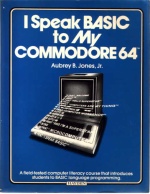My company is having a very difficult time finding mid-level developers. Our development team isn’t that large, so the number of junior people we can support isn’t that large. In terms of .Net experience, we have 3 relatively junior developers and myself. I’ve done a fair amount of architect work, senior development / team lead stuff, and been doing .Net for about as long as it has been out. That leaves us with a gaping “talent hole” that could be filled by a mid-level developer or two.
The problem, however, is that every resume we see is someone who is definitely very junior or someone claiming to be an architect (who often techs out at lower mid-level). My boss (and I can’t say I blame him) is against hiring someone who thinks too highly of himself and seems unteachable. A certain amount of ego does come with the territory and everyone is trying to get the best job for the most money possible, but people really need to be honest with themselves.
I’ve done a lot of thinking about this and I think that I’ve come to a conclusion on this problem. The reason that we are having such a hard time finding solid mid-level developers is because they are actually very scarce (in relation to the rest of the populace). Hear me out.
Junior developers are – of course – the most plentiful. Every developer who will ever be anything starts out in this rank. However, I believe that the people who will actually become great in this profession move out of this group rather quickly. In talent level, they are my coveted mid-level developers; by experience, they can easily be overlooked as still junior.
Almost two years ago, Jeff Atwood wrote a post on Coding Horror in which he quoted Bill Gates on this subject. I’ll leave you to read the post, but basically someone asked Bill Gates if accumulating experience made programming easier and he said, “No. I think after the first three or four years, it’s pretty cast in concrete whether you’re a good programmer or not”. He goes on from there, but that hits my point.
People who “get it” and have a lot of experience – the “rock stars” that Joel Spolsky writes about – are hard to find. Spolsky claims that you don’t find them easily at all because they are rarely on the market for any amount of time and in essence “hand pick” their jobs.
People who “get it” and don’t have a lot of experience – probably most likely the people I am looking for – are very hard to find because their resumes hide the fact that they are good and are going to be awesome some day.
People who don’t “get it” can have any number of years of experience and they are still not attractive candidates. In the Columbus, Ohio market (where I’m located) there is a relative shortage of developers, so seemingly everyone can find a job. What I’m speculating is that these individuals end up with 7-8 years of experience and think that they should then be able to land a senior job. In my opinion, however, they fall into the category of “poor developer” and shouldn’t be hired into those positions by any reputable company. What may happen is that some consulting firm will pick them up and bill them out at $150.00 an hour as “experts”, but it is really the consulting company’s system that gets them through projects.
(A quick note: I am not saying that anyone who consults is no good. I’ve met several consultants who are of the utmost quality and deserve every penny they make (often they are independent and actually get to keep much of what they bill). However, I’ve also met quite a few consultants who I’d mark as falling into the broad categorization of this post.)
I don’t know what to do about this problem, actually. If you are a good, solid developer who “gets it” and wants to work with the latest and greatest coming out of Redmond, leave me a comment and if we still have positions open at the time, I will personally make sure that your resume gets looked at and unless it is god-awful, I can pretty much guarantee you a phone tech-screening. From there its all you, hotshot.
 Kind of mentioned it above, but BASIC on my Commodore 64. In fact, my first book on programming was called “I Speak BASIC to my Commodore 64”.
Kind of mentioned it above, but BASIC on my Commodore 64. In fact, my first book on programming was called “I Speak BASIC to my Commodore 64”.